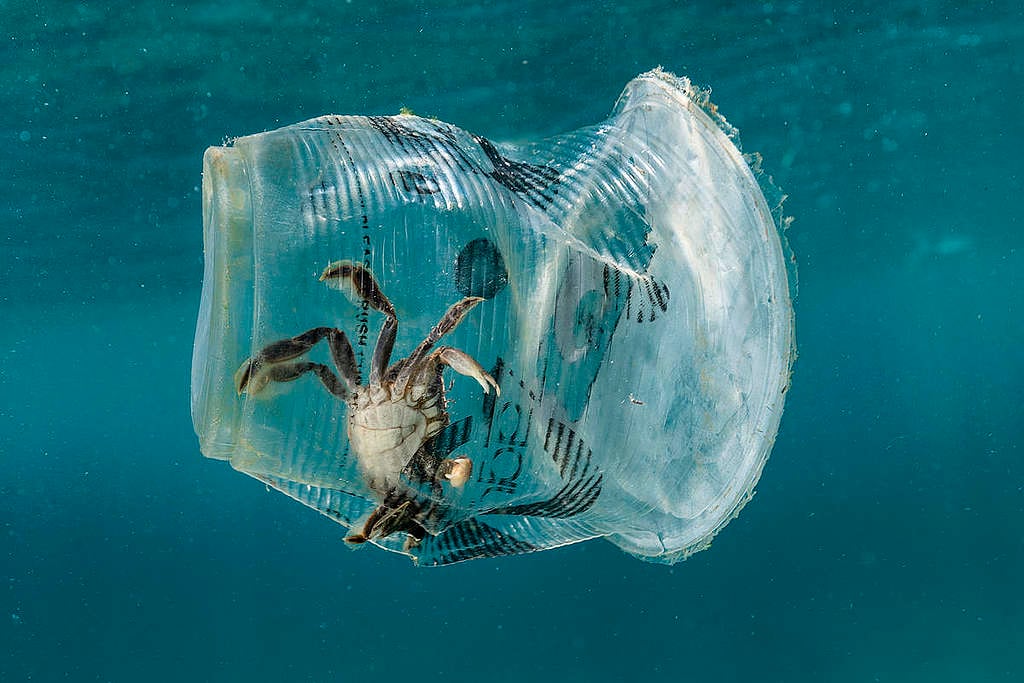Manila, Philippines – A young whale was washed ashore on the beaches of Compostela Valley, the Philippines, on March 15, Friday. An examination on the carcass of the whale revealed that the cause of death are ‘starvation and dehydration’ after it was found that it ingested 40kgs of plastic, and was tagged as one of the worst cases of poisoning ever seen.
Abigail Aguilar, campaigner for Greenpeace Southeast Asia – Philippines, said:
“The frequency on which marine animals are dying due to plastic ingestion is alarming. In less than a year, whales, dolphins and turtles have died in Thailand, Indonesia and the Philippines, a clear proof how grave plastic pollution affects our environment, most specifically ocean creatures. In Davao Gulf alone, three whales and a dolphin have been found dead with plastic in their stomach for this year, and we are just about to close the first quarter of 2019.
“Just a week ago, we have documented a crab trapped inside a disposable cup under the seas of Verde Island Passage, the epicenter of marine biodiversity in the world. It is unimaginable how many more animals are mistaking and ingesting plastic for food right now, and how many more of them will be found beached and dead soon. One piece of plastic found in the stomach of a whale or a dolphin is one piece of plastic too many. How many dead whales, dolphins, or sea turtles do we need before we wake up and take drastic action on plastic pollution?
“We can never emphasize enough how urgent it is for corporations to reduce the production of single-use plastic and redesign packaging and systems to minimize plastic waste, for governments to ban single-use plastic products, and for citizens to be mindful of a throwaway lifestyle and put pressure to both the government and the industry to take decisive steps to counter this crisis. This is not just a cause for alarm, this must be an urgent call for quick, effective, sustainable and large-scale action against plastic pollution. From production, to consumption, to disposal, we have to get our acts together.”
For interviews please contact:
Angelica Carballo Pago, Greenpeace SEA Philippines Media Campaigner
+63 949 889 1332, [email protected]
Capucine Dayen, Greenpeace USA Global Comms Lead for Plastics
+33 647 971 819, [email protected]
Greenpeace International Press Desk
+31 (0)20 718 2470 (available 24 hours), [email protected]

